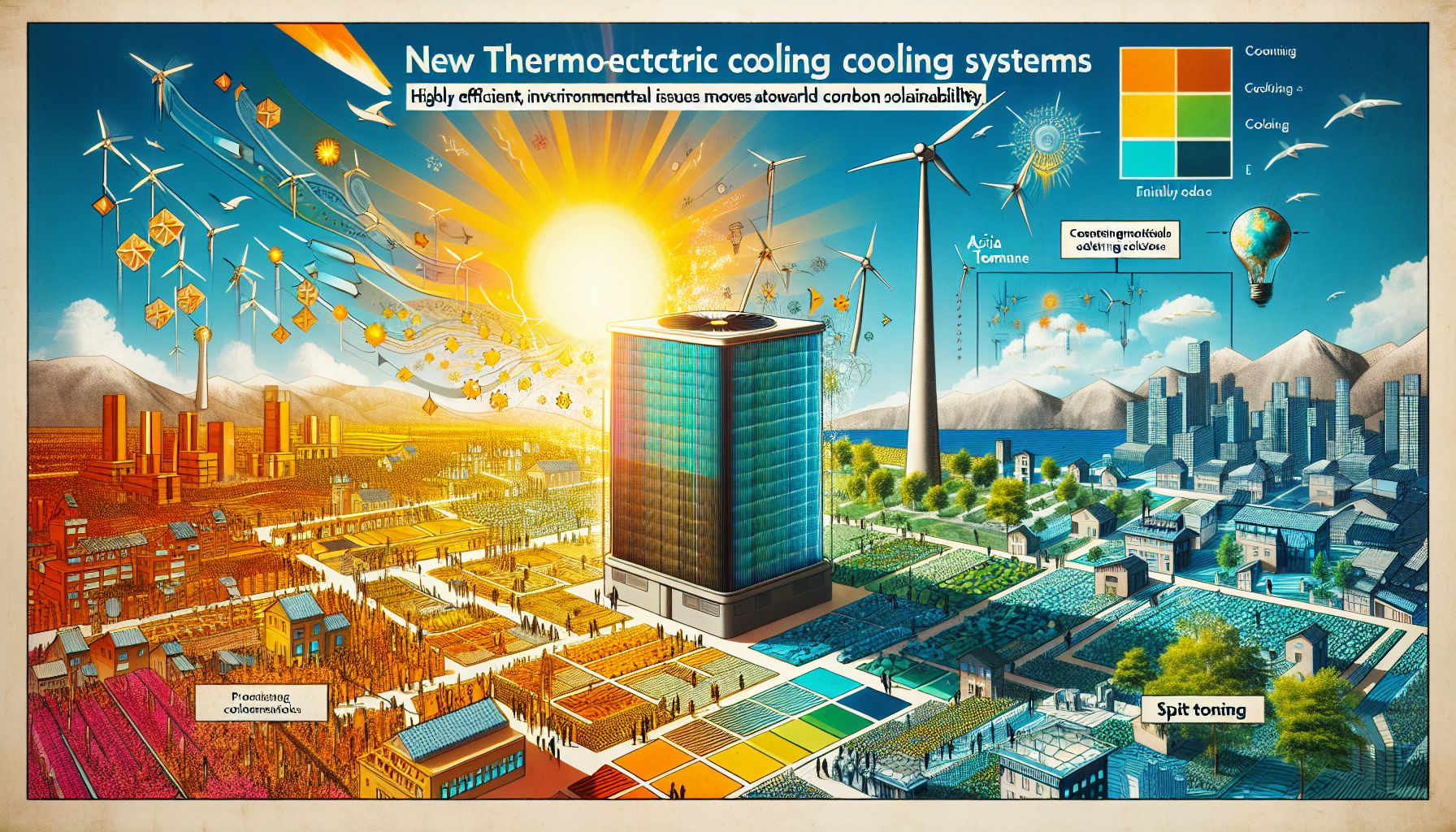Innovative Cooling Technologies Enhance Sustainability in Asia

Seoul, Monday, 2 June 2025.
New thermoelectric cooling systems can boost efficiency and combat environmental woes from traditional cooling, aiding Asia’s shift to low-carbon solutions.
Technological Innovation Driving Change
The recent breakthroughs in elastocaloric and thermoelectric cooling technologies signal a significant shift towards sustainable solutions in Asia. Companies such as Zhejiang Xian Dao Thermal Electric Technology Corporation are at the forefront, integrating over 30 years of R&D experience into this advanced sector [2]. This innovation aligns with parameters aimed at reducing the environmental impacts of conventional cooling by efficiently transferring heat through solid-state mechanisms [4].
Asia-Pacific’s Role in Future Cooling Solutions
Regions such as Japan, South Korea, and Singapore stand as prime examples of adopting these technologies to mitigate urban heat and energy demand. With thermoelectric cooling systems designed to fit compact spaces and function silently, they’re perfectly suited for dense urban areas, promising energy efficiency and low operational costs [3]. Southeast Asia’s tech startups are also embracing this change, focusing on global expansion, particularly towards the US market, reflecting a robust cross-border ambition [5].
Graphene: A New Cooling Frontier
Innovations in materials, specifically graphene-based composites, have shown potential to increase cooling efficiency by 50% in laboratory tests, presenting an exciting frontier for sustainable development [1]. These advancements could revolutionize heat management in sectors ranging from automotive to personal electronics, highlighting the region’s commitment to supporting environmentally friendly technologies. Field trials are expected to commence in July 2025, further assessing their practical applications and long-term benefits [1].
Implications for Future Energy Efficiency
Adopting thermoelectric modules, such as those developed by Ferrotec, represents a significant step toward enhancing energy efficiency while minimizing carbon footprints [3]. As the global thermoelectric cooler market is projected to grow significantly, the potential for these systems to integrate with renewable energy sources and IoT-driven applications suggests a promising horizon for sustainable urban planning [1][6]. With the backing of industry leaders and innovative startups across Asia, this transformation is not only feasible but inevitable, paving the way for cleaner, smarter cities.
Bronnen
- www.forwardpathway.com
- www.advanced-te.com
- www.advanced-te.com
- www.businessinsider.com
- www.koreatechdesk.com
- ameblo.jp